Conference speakers
Dr Christine Padesky – keynote speaker
Center for Cognitive Therapy, California
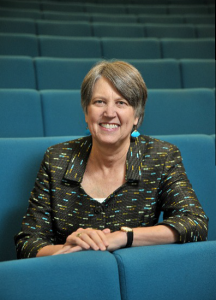
Dr Padesky will be presenting twice via video link during the scientific program:
- Virtual Keynote: “Action and dialogue in psychotherapy: dance of equals”
Description of Keynote: The evolution of Cognitive Behaviour Therapies (CBT) has often involved a tug-of-war between those who emphasise behavioural interventions, those who focus on cognitive inquiries and dialogues, and those who advocate for mindfulness and acceptance. Padesky shares her current integrative vision of CBT as a collaborative quest for discovery that can incorporate all these perspectives. In her approach, therapists emphasize action therapy methods to elicit emotion, full body experiencing, beliefs, imagery, behaviours and values within interpersonal and cultural contexts in order to foster deeper learning and change. Padesky offers a collaborative, strengths-based model in which the full power of psychotherapy is revealed when action therapy methods and Socratic dialogue interact in a dance of equals.
- Virtual Masterclass: “More walk, less talk: action-packed CBT”
Masterclass Description: Lasting learning and change are more likely to result from active experience and doing than from book knowledge alone. If we apply this idea to psychotherapy, we need to consider that talk therapy by itself is not always the best therapy. The phrase, “action-packed CBT” describes a therapeutic approach that combines talk with active learning experiences embedded into each session. Action methods demonstrated in this workshop include: interactive writing/drawing, imagery, role playing, and behavioural experiments used to test out beliefs and to try out new behaviours.
Christine Padesky is a leading cognitive therapy innovator, and provides workshops and consultation to therapists worldwide and develops audio and video therapist training materials (digital downloads). Along with Kathleen Mooney, PhD, Dr. Padesky is co-founder of the Center for Cognitive Therapy in Huntington Beach, California and co-creator of Strengths-Based CBT. Christine is considered one of the leading CBT presenters in the world, appreciated for her depth of knowledge, compassion, and good-humoured warmth. She has presented over 500 workshops to more than 50,000 professionals throughout North and South America, Europe, Oceania and Asia as well as 25 workshops with cognitive therapy’s founder, Aaron T. Beck, M.D. Her clear, organised and compelling presentations integrate theory, empiricism, creativity, practical skills, and audience interaction. Listen to this YouTube presentation with Christine hosted by Dr. Jesse Wright. You can find clinical tips on her own YouTube channel.
Associate Professor Brett Deacon – invited speaker
Cairnmillar Institute
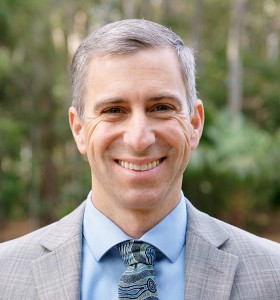
Concurrent address “Insights from my transition from academia to real-world practice: reflections on a failed paradigm of care and proposed solutions”
Dr. Brett Deacon is a clinical psychologist, practitioner, scientist, educator, and anxiety specialist. Originally from the United States, he relocated to Australia in 2014 and lives in Melbourne where he works at the Cairnmillar Institute as Associate Professor and coordinator of the doctor of psychology course. His research focuses on the nature and exposure-based treatment of anxiety as well as critiquing the DSM-based biomedical model of psychological problems. Following a dozen years in academia, Brett spent four years in full-time practice before resuming his academic role in 2021. During this time, he worked at a psychiatry clinic and ran a solo private practice. Brett is a Fellow of the Association for Behavioural and Cognitive Therapies in the US and has won numerous awards for teaching, research, and student mentoring. He served as editor of the Behavior Therapist, has published over 100 journal articles and book chapters, and co-authored Exposure Therapy for Anxiety: Principles and Practice, published by Guilford Press in 2011 and 2019 (2nd ed.). Read some thoughts from Brett about mental health literacy here.
Professor Jennie Hudson – invited speaker
Black Dog Institute, University of New South Wales
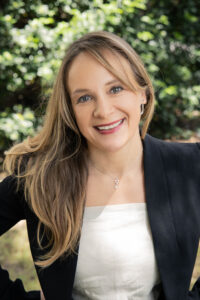
Professor Hudson will present twice:
- Concurrent Master Clinician Session “Using exposure treatment effectively in the treatment of anxiety in children and young people”
- Plenary address “Improving psychological treatments for children with anxiety disorders”
Professor Jennie Hudson is the Director of Research and Professor of Clinical Psychology at the Black Dog Institute and is a Fellow of the Academy of Social Sciences of Australia. Jennie was an ARC Future Fellow at Macquarie University (2013-2016), and a Visiting Fellow at the University of Oxford (2015-20). Jennie’s research focuses on understanding the factors that contribute to children’s emotional health and working to improve the services available to children experiencing anxiety and other emotional disorders. Jennie has authored over 180 publications including a co-authored the book “Treating anxious children: An evidence-based approach” (2000) and edited “Psychopathology and the Family” (2006). She is an Associate Editor for Research in Child and Adolescent Psychopathology, and on the editorial board of a number of international journals including Clinical Child and Family Psychology Review, Journal of Clinical Child and Adolescent Psychology and Behaviour Research and Therapy. Watch a TEDx Talk on YouTube about childhood anxiety.
Professor Penelope Hasking – invited speaker
Curtin University
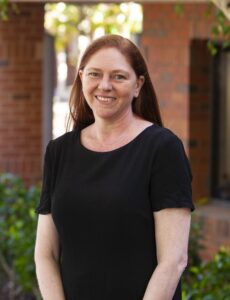
Plenary address “A person-centred and strengths-based approach to non-suicidal self-injury“
Professor Hasking‘s work focuses on mental health among adolescents and young adults. Her primary interests are in the social and cognitive factors that initiate and maintain non-suicidal self-injury (NSSI) among youth. She is President of the International Society for the Study of Self-Injury (ISSS), the leading organisation promoting the understanding, prevention, and treatment of self-injury. As the Co-Chair of the International Consortium on Self-Injury in Educational Contexts (ICSES), she has led the development of international guidelines for addressing NSSI in schools and universities, and worked with international colleagues to promote advocacy and outreach for people who self-injure and those who care for them. In related work Prof Hasking is leading the Australian arm of the World Health Organization’s (WHO) World Mental Health Surveys – International College Student Initiative, which seeks to collect cross-national data on mental health of university students, identifying unmet needs and linking students with appropriate mental health services. Read this article in The Conversation from Professor Hasking about NSSI.
Dr Bronwyn Raykos – invited speaker
Centre for Clinical Interventions (CCI), North Metropolitan Health Service, WA

Plenary address “Cognitive behavioural therapy for eating disorders (CBT-ED): status, innovations, and implications for the therapy room”
Dr Raykos is Head of the Eating Disorders Program at the Centre for Clinical Interventions (CCI) in Western Australia and also leads the CCI eating disorders research program. She is passionate about delivering evidence-based treatment for individuals with eating disorders and their families and about evaluating and improving treatments for patients with eating disorders. Working across adult, youth and child sectors she has extensive experience in family-based treatment (FBT) and cognitive behavioural therapy for eating disorders (CBT-ED). She developed the Urgent Access Family-based Treatment (Urgent FBT) pathway at CCI, which was nominated for a WA Health Excellence Award.
Her research has been published in peer-reviewed journals and presented at several national and international conferences. Bronwyn is a member of the Australian and New Zealand Academy of Eating Disorders (ANZAED), a member of the Eating Disorders steering group in WA, and is currently on the editorial board of the International Journal of Eating Disorders. In 2018 Bronwyn received an award for her talk at the Eating Disorders Research Society conference, for a paper that demonstrated that individuals with chronic and severe anorexia nervosa did just as well in CBT-ED than those with shorter illness duration. She has previously worked at the Institute of Psychiatry in London. Bronwyn completed her BA (Hons), Masters Degree in Clinical Psychology, and Doctorate of Philosophy at the University of Western Australia.
This is a 2019 article from Dr Raykos about Eating Disorders.
Dr Georgie Paulik-White – invited speaker
Clinical Director, Perth Voices Clinic
Professional Practice Fellow, School of Psychological Science, University of Western Australia
Adjunct Senior Lecturer, Discipline of Psychology, Murdoch University
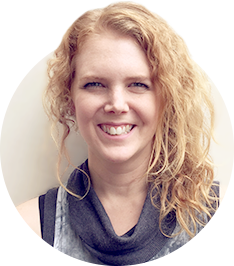
Plenary address “Imagery-rescripting for trauma affected voice hearers”
Dr Georgie Paulik-White is a research-practitioner who is passionate about working with people with psychosis and those who hear voices. She completed her PhD in voice hearing from the University of Western Australia in 2007 and has produced several peer reviewed publications and a textbook in the field of psychosis and voice hearing. She has worked in UHR and early psychosis services, in both Sydney and Perth, and has been team leader of early psychosis programs. She developed a novel intervention for voice hearers named Cognitive Behaviour Relating Therapy alongside colleagues in the UK. In 2016 she, and Prof. Johanna Badcock, opened Perth Voices Clinic, at Murdoch University and Midland Headspace, to improve services and training of mental health professionals working with voice hearers. She is also passionate about exploring the role of trauma in hearing voices and the impact of psychological interventions for trauma on voice hearing, and has ongoing collaborations on trauma interventions, including Imagery Rescripting, with Prof Arnoud Arntz (Netherlands), Prof. Craig Steel (UK), and Prof. Peter McEvoy (Perth). Read more in this article in The West Australian.
Professor Nick Titov – invited speaker
MindSpot, Department of Psychology, Macquarie University

Plenary address “Lessons in delivering digital mental health services: things we wished we knew before we started”
Nick Titov is a Professor in the Department of Psychology, Macquarie University. His work is concerned with the development and delivery of digital psychological treatments. He has been involved in more than 90 clinical trials of psychological treatments involving more than 10,000 people across four countries. He has published more than 200 peer-reviewed papers.
Nick is also Executive Director of both the MindSpot and PORTS’ Clinics. MindSpot is an Australian national service that provides digital assessment and treatment for adults with anxiety and depression. PORTS delivers digital mental health services to primary care across the state of WA. Together, these clinics employ more than 60 mental health professionals and serve more than 30,000 people per year. His research and clinical services have attracted more than $70M in funding.
Nick also serves on several advisory groups including as Chair of the Expert Advisory Group to the Australian Commission for Safety and Quality in Healthcare on the development of the National Safety and Quality Digital Mental Health Standards.
Book your tickets here!

